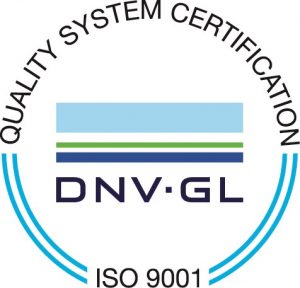What Is Metal Fabrication?
Metal fabrication is a process involving the manufacturing of metal parts and products in a specific shape or form as required. It is a complex process that includes cutting, folding and shaping metal to create a finished part, then followed by welding and coating. The fabrication process can be used for mass production and custom metal projects that usually involve designers and engineers.
What Do Metal Fabricators Do?
A metal fabricator is required to read, study and interpret blueprints and specifications to understand the scope of the project. A range of tools is used to cut, align and weld metal including hand tools, flame-cutting torches and hammers, hence why personal protective equipment (PPE) has to be worn at all times. Advanced machinery such as CAD software and CNC machines may also be involved in the process. After the initial product process, a quality control review is performed to ensure that the quality of the fabricated metal is acceptable.
What Qualifications Do Metal Fabricators Need?
Some metal fabricators get their training on the job however, many others receive their qualifications by getting the required training at TAFE. The course will cover blueprint studies, metal and steel fabrication, welding techniques and industry safety regulations. To become a qualified metal fabricator, a 42 – 48 month apprenticeship is often required.
What Type Of Projects Do Metal Fabricators Work On?
Depending on the metal fabricators’ skillset and specialism, they may work on a wide range of products including electronic devices, vehicles and aircraft. Some metal fabricators may also exclusively work in factories, mining, construction and infrastructure.
Metal Fabrication Process
The process to fabricate metal products from raw materials is complex. Depending on the project specifications, the process may involve additional steps and alterations. However, the general metal fabrication process generally involves cutting, bending, moulding, welding and coating. We will look at the major steps in the fabrication process:
Cutting
Cutting is the first stage of any fabrication project after the blueprint has been studied. There is various way to cut raw metal, from using a basic saw to water jets, chiselling, plasma torches, die-cutting and laser. Cutting machines can be a huge operational cost, which is why during the initial stages of the project, machine cost-effectiveness should be factored into the project cost. For example, programmed CNC cutting will cost a lot more than using a plasma torch.
Bending
Metal and stainless-steel bending is performed manually or through electric tools to get the cut metal into the desired form. This needs to be performed at an appropriate angle to avoid failure or suboptimal performance.
Welding
Welding involves attaching 2 pieces of metal through a joint to achieve a larger structure. For certain complex projects, specialised welders will often be employed to ensure that the joint is suitable for the intended end-use. There are various ways to weld metal including structural welding, MIG and TIG welding.
Coating
Coating is the process of applying a layer to the exterior of the metal and is often referred to as metal finishing. This is done by applying a thin layer to the metal to improve its surface characteristics (improved durability and increased corrosion, abrasion and chemical resistance). Metal fabricators use a wide range of finishing depending on the material and application to improve their finish quality.
At Ogis Engineering, we have built a strong reputation over decades through a skilled team and improving our technical capability. From design to delivery, our team is here to help with your project, contact us today to discuss your upcoming project.


